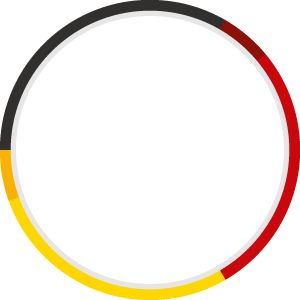
Professor Friederici,
Distinguished nominators,
Distinguished prize winners – Dr Ali, Dr Beidenkopf, Professor Presser and Professor Suss – and your families,
Distinguished guests,
The Federal Research Ministry has been presenting the annual Award for Research Cooperation and Highest Excellence in Science – or ARCHES for short – to German-Israeli research teams since the German-Israeli Year of Science and Technology in 2008. It is a great pleasure for me to welcome you to the Federal Ministry of Education and Research here in Berlin for what is our ninth prize ceremony.
Research builds bridges between people who share the desire for knowledge and understanding. Working together, they cross boundaries, learn to share values and contribute towards understanding between nations and cultures.
The ARCHES prize – like the work of the German-Israeli Foundation, the Martin Buber Society of Fellows and many more institutions – is an expression of the remarkable new beginning, of partnership and of trust that has grown between Germans and Israelis.
What began as careful initial contact, as Otto Hahn described it, won the support of Prime Minister David Ben Gurion and Chancellor Konrad Adenauer, and led to the first Minerva Agreement on scientific cooperation between Israel and Germany in 1964 – one year before the establishment of diplomatic relations. Since then, we have been able to build up a portfolio of cooperation projects between Israel and Germany, whose range and diversity is outstanding. What is more – this cooperation is at an absolute top level!
Distinguished Prize Winners,
you and your teams are continuing the success story of German-Israeli cooperation. You have earned this prize with your outstanding research which distinguishes itself in that it aims to provide innovative solutions for the future.
The ARCHES prize for those nominated in 2016 covers the fields of chemistry, physics, technology and mathematics.
Your teams, which we are honouring today, are involved in interdisciplinary research fields such as the electrochemical application of novel nanomaterials or work on exciting topics of basic research in the area of condensed-matter physics.
Your research can make an important contribution to the development of new and innovative thermoelectric or electrochemical materials. It has high potential for application, for example, in applied materials research, energy storage and water desalination.
I am very much looking forward to learning more about your projects and your goals today.
The prize which you are receiving now as principal investigators in your research teams is in recognition of what you have already achieved. But it is intended first and foremost to encourage and enable you to conduct further excellent bilateral research work and to devise joint forward-looking projects. It is also intended to help you to inspire the next generation of researchers in your teams with enthusiasm for German-Israeli cooperation. We want this cooperation to continue to grow on a long-term basis.
I am delighted to be able to award one of the two ARCHES prizes this year for cooperation between scientists from a Max Planck Institute and the Weizmann Institute. Their excellent research places this team in the best traditions of these two famous institutions.
I am equally delighted that I can also honour scientists from the Leibniz Association and Saarland University as well as the Technion. I know that the Leibniz Association is intensifying its cooperation with Israel. This is something I very much welcome. Technion is not only an outstanding scientific institution, it is also closely linked with Germany. As Israel’s oldest university it was initially modelled on German institutions.
Before we award the prizes, I would like to take this opportunity to thank the Minerva Foundation for organizing the ARCHES Programme with such great professionalism from the very beginning. Year for year, the MINERVA Fellowship Committee selects the very best from a whole number of excellent applications. I would also like to thank the nominators for their laudations. They have rendered outstanding services as true mentors of young researchers.
And finally, I would like to thank the musicians – who are graduates of the Hanns Eisler School of Music here in Berlin – for enhancing today’s event and providing such great inspiration. Music, like science, knows no boundaries. It gives expression to the universal human spirit.
Ladies and Gentlemen,
It is now a great pleasure for me to award the 2016 ARCHES prizes in the fields of Chemistry, Physics, Technology and Mathematics.
Upon nomination by Professor Dr Stuart Parkin of the Max Planck Institute of Microstructure Physics in Halle, the 2016 ARCHES prize is awarded to:
- Dr Haim Beidenkopf of the Weizmann Institute of Science in Rehovot, and
- Dr Mazhar Ali of the Max Planck Institute of Microstructure Physics in Halle.
The prize is awarded for their project "Pioneering Thermoelectric Applications Using Dirac and Weyl Materials".
Congratulations!
And upon the nomination of Professor Dr Eduard Arzt of the INM Leibniz Institute for New Materials in Saarbrücken and of Professor Dr Yoram Helevi of the Israel Institute of Technology in Haifa, the 2016 ARCHES prize is also awarded to:
- Professor Dr Matthew Suss of the Israel Institute of Technology in Haifa, and
- Professor Dr Volker Presser of the INM Leibniz Institute for New Materials in Saarbrücken.
The prize is awarded for their cooperation in the project "Novel Fluidized Bed Electrodes for Continuous Flow Systems to Enable Next-generation Electrochemical Energy Storage and Water Desalination".
I would now like to ask the prize winners to step forward to receive your prizes.


Empfehlen Sie uns!